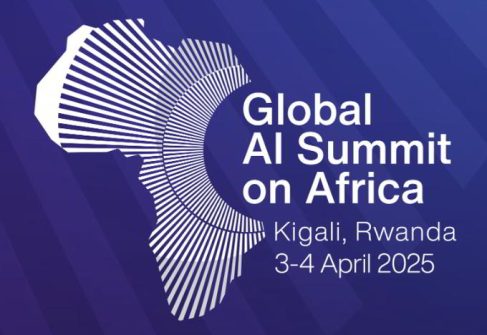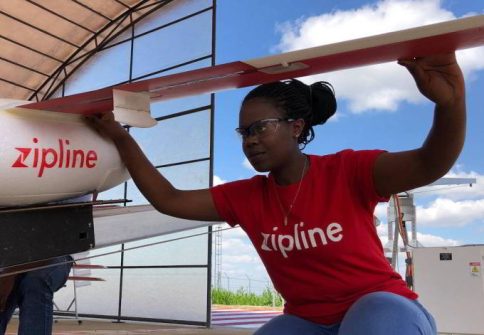The AI challenge for Africa.

Artificial intelligence is the main game in town on the planet. On 3 and 4 April, Rwanda will host the first Global AI Summit on Africa. The continent is lagging behind others in terms of preparedness, but it is also bursting with initiatives.
Participants will discuss how AI can drive economic growth, innovation, and workforce development while ensuring ethical governance and risk mitigation. Issues such as education, building infrastructure, and preserving sovereignty will be addressed, as well as investment, governance, and ethics. Discussions will focus on national AI strategies and the role of emerging technologies such as quantum computing and robotics.The Artificial Intelligence African Council, which will bring together representatives from 40 African countries to promote the use of new technologies on the continent, is expected to be launched during the summit. This initiative follows the African Union’s assessment that AI is a strategic asset critical to achieving the aspirations of Agenda 2063 (The Africa We Want) and the Sustainable Development Goals.

Photo: courtesy GAISA
Adoption of AI technologies is growing rapidly across Africa. According to the 2024 Stanford AI Report, 27% of Kenyans use ChatGPT daily. The hope is that AI can fill gaps in education and health systems, improve agricultural yields, and provide access to financial services for people who remain excluded from the banking system.
However, the rapid adoption of foreign AI technologies raises many concerns. Data privacy is a key issue, as is the location of data storage. This highlights the need for robust AI governance policies and data protection laws to prevent data loss or theft for foreign technology companies. In addition, surveillance by AI technologies poses a significant risk to citizens in countries with weak institutional
and governance systems.
The AI impact in Africa
According to a recent OECD study, 27% of jobs worldwide are in occupations at high risk of automation, as up to a quarter of the work currently done by humans could be done by AI systems. The impact could be enormous in Africa, a continent where economic growth, while spectacular, cannot absorb the number of young people entering the labour market each year and could increase the brain drain to Europe
or other destinations.
Several African countries have embarked on the AI path but so far, only three have fully developed policies and less than ten have national AI strategies. AI labs have emerged in universities in Ghana, Uganda, and South Africa, centred on utilizing AI for social impact.

In Africa, many startups and public organizations are beginning to invest in the development of AI applications in health, transportation and agriculture. 123rf
One example is the SignTalk project of the Responsible Artificial Intelligence Lab (RAIL) at Ghana’s Kwame Nkrumah University of Science and Technology, which aims to enhance healthcare accessibility for the hearing and speech impaired through a Ghanaian Sign Language translation system.
In an interview with Radio France Internationale, Paulin Melatagia, head of the research team on AI and data science at the University of Yaoundé, says that Africa has already begun its transformation. Many startups and public organizations are beginning to invest in the development of AI applications in health, transportation and agriculture. But the pace of transformation varies widely from country to country.

A flight operator scans a package barcode before loading it into the Zipline drone. Rwanda, in partnership with the U.S. company Zipline, has developed a drone delivery system. Photo: Zipline
Concrete examples of AI applications in Africa illustrate its transformative potential. In Nigeria, data platforms like Zenvus are making it easier for farmers to access critical information, leading to improved yields and agricultural productivity. In South Africa, a startup called ThisIsMe has developed an AI-powered platform that allows banks to more accurately and securely verify customer identities.
Rwanda and Kenya are at the forefront of the continent’s drone revolution. Rwanda, in partnership with the U.S. company Zipline, has developed a drone delivery system that can transport blood to remote clinics and hospitals in less than half an hour, compared to three hours in the past. Rwanda’s success led to Ghana also adopting the Zipline system, while encouraging African companies such as Niger’s Drone Africa Service, Nigeria’s Zenvus, Rwanda’s Charis UAS and Zambia’s i-Drone Services Limited to also develop drone technology.
Drone Operators
By 2023, there were more than 300 licensed drone operators in Kenya. Local authorities are developing a drone facility in Laikipia with AALTO, a subsidiary of European aircraft manufacturer Airbus, to serve as a home base for Zephyr drones, which will conduct long-duration flights in the stratosphere that can serve as communication relays and high-resolution surveillance platforms.
Kenyan authorities have created an impressive innovation hub between Nairobi and Mombasa called Konza Technopolis. The evolution of drone technology could help African countries leapfrog over bad roads and unreliable power grids in the same way that cell phone technology overcame the lack of landline telecommunications. At the current rate, Africa’s drone industry could create more than 200,000 jobs by 2030, according to the World Bank.

Last August, Baykar announced that Kenyan operators had completed a specialized training program at Baykar’s pilot training centre in Keşan, Turkey. Photo: Baykar
Drone technology has also transformed the defense sector. According to the UN, attack drones are being used in the Democratic Republic of Congo by Rwandan-backed M23 rebels and the Rwandan Defense Force. Similar Turkish-made Bayraktar TB2 drones are being used in the Sahel against jihadists by the armies of Burkina-Faso and Niger.
However, African countries are lagging in the global adoption of AI. Currently, no African nation ranks among the top 50 countries in the world in terms of government readiness for AI. Several conditions need to be in place to enable such development.
African nations face significant challenges such as inadequate infrastructure, limited connectivity, low digital literacy, and a lack of robust AI governance and regulatory frameworks. Perhaps the competition between Chinese and American tech companies could offer African governments a strategic advantage in attracting investment from both sides in these areas.
Data availability
Another major barrier is data availability. Creating AI solutions that address Africa’s problems requires African data, but little data is collected on Africa. ChatGPT, for example, has been criticized for alleged biases about African realities due to the limited amount of African data used to train these models, which is why it is important to develop solutions that understand and process African languages.
There is a shortage of data centres on the continent, which houses less than 2% of the world’s equipment needed to process the data used by AI applications. According to Alex Tsado, founder of the South African expert group Alliance4AI, only 5% of Africa’s talent has access to the computing power and resources needed to perform complex tasks.

Africa can benefit from artificial intelligence, but first it needs to develop its infrastructure, especially electricity and data connectivity. 123rf
In addition, there is a lack of local skills and a context of underfunding for African companies in the sector. Although Africa represents 17% of the world’s population, it produces less than 1% of the world’s AI, according to analyst Bright Simons of the Ghanaian think tank Imani.
There is a consensus that Africa can benefit from artificial intelligence, but first needs to develop its infrastructure, especially electricity and data connectivity. Only 37% of Africans use the Internet, compared to 90% in Western Europe, Russia and the Americas, and around 70% in Arab countries and Asia. It is no coincidence that sub-Saharan Africa ranks last in Oxford Insights’ Government AI Readiness Index 2024. Only Mauritius, South Africa and Rwanda scored above 50% in AI readiness.
The best-prepared countries are, not surprisingly, those with the highest access to telephones and electricity.
The same countries appear in all three rankings. According to Oxford Insights, South Africa, Namibia, Egypt, Morocco, Mali, Burkina Faso, Côte d’Ivoire, Senegal and Tunisia are among the countries with the best telephone access.Not surprisingly, six of these countries appear in the AI readiness rankings.

There is a shortage of data centres on the continent, which houses less than 2% of the world’s equipment needed to process the data used by AI applications. 123rf
South Africa, Morocco, Tunisia, and Egypt are also among the countries with the best access to electricity. Internet is not sufficiently available, but even when it is, the high cost of Internet access, smartphones and broadband hinders the widespread adoption of AI.
As Fahd Azaroual points out in a paper on the challenges and opportunities of AI in Africa published by the Policy Centre for the New South in May 2024, another constraint to the adoption of AI intelligence in Africa is the development of conducive ecosystems involving stakeholders such as policymakers, universities, technology companies, startups, civil society, and international organizations. Another important enabling condition is regulation.
The African Union introduced a legally binding framework with the Malabo Convention on Cybersecurity and Personal Data Protection, which will come into force in 2023 and aims to harmonize data protection laws across Africa. However, with only 15 countries having ratified it so far, its impact remains limited. (Open Photo: 123rf)
François Misser



